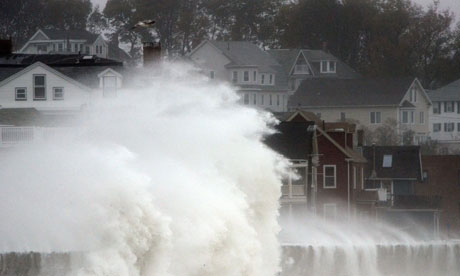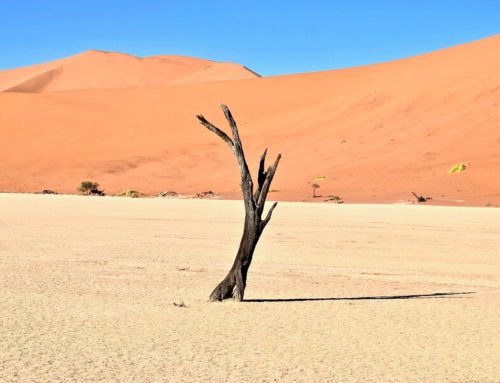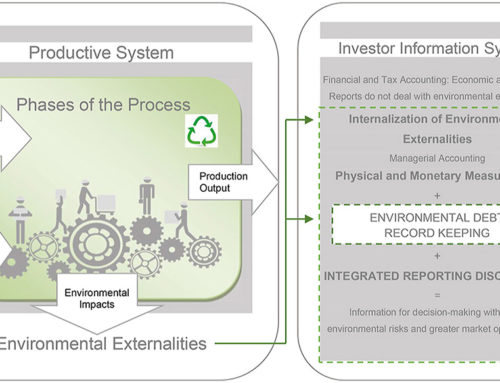First published in the Guardian, December 19, 2013.
My years of work as a radical environmentalist in concert with multinational business has inspired me to believe that we can change our mindset from “Why don’t they?” to “Why don’t we?” So many engineers and executives demonstrate courage, tenacity and creativity when faced with regulation or resource constraint in the pipeline.
Real opportunities for transformative change lie in preparing for crises. The National Academy of Science’s new report, Abrupt Impacts of Climate Change, states:
“To willfully ignore the threat of abrupt change could lead to more costs, loss of life, suffering, and environmental degradation … The time is here to be serious about the threat of tipping points so as to better anticipate and prepare ourselves for the inevitable surprises.”
Before Hurricane Sandy hit the US’s north-east in 2012, scientists and meteorologists warned of a likely devastating weather event on the eastern seaboard at some point. By day one after the storm, it was clear that we would spend more than $100bn on recovery. You didn’t need an expert to imagine the financial devastation. But you did need serious analyses and one helluva backbone to make smart, tough decisions on infrastructure, relocation and rebuilding.
So taxpayers (federal, regional and local), businesses and families spent this huge sum of money, and we will likely have to spend it all over again in the near future. These difficult expenditures were almost obligatory despite strong leadership from local governors and mayors. We were simply not prepared for this predictable event. We do not have our transition agenda in place.
We are already between a rock and a hard place and we have no Plan B. We must now have the hard discussions to identify what we would need to do – and what we would be prepared to do – under exigent circumstances in a global (or local) emergency. We talk about a world of increasing population and constrained resources, yet we continue our high-carbon lifestyles, with business as usual and poorly directed government subsidies.
This is not how we operate in other situations. In healthcare, for example, we immunize ourselves with vaccines (from tetanus to smallpox). The entire insurance industry’s business model is based on high-impact, low-probability events. But when it comes to climate change, we fail to consider a black swan event that will create significant trauma, as well as transformational opportunities. Nothing is more urgent than being ready to seize these opportunities.
In our everyday lives, we have grown accustomed to the face of environmental degradation, from air pollution (more costly than tobacco in healthcare dollars) to water pollution (the FDA advises against eating king mackerel, swordfish and more, because of heavy-metal contamination). We can and must realize a world with a thriving low-carbon and low-waste economy – despite how hard and costly the early investments will be.
These investments may not satisfy short-term earnings pressures or public budget cycles, but will absolutely lower costs in energy, waste, water and healthcare in the medium and long term. This high price seems a fair trade for a decent life for our children and a modicum of stability for our fundamental public and private institutions.
My fellow environmental activists and I always say, “Business as usual cannot continue.” And now, many businesses – and the National Academy of Sciences – say the same thing as fiercely and straightforwardly. Unfortunately, one or more of these events will likely happen within the next five to 10 years:
Extreme weather devastates 20% of the world’s wheat, rice, corn; an entire marine ecosystem collapses; major energy outages/shortages interrupt basic survival systems; social upheaval caused by lack of food, water, energy or financial security; another nuclear/oil spill/chemical event; water shortage ot drought causes mass migrations; large industries/economies collapse, a big resource war follows
Sorry, I’m not with you to buy you a drink after this list. What are our choices? We could do nothing new and pray for the best. This is a bad option.
But we have two choices that already have leadership, momentum and money on the table.
First, we can start radical transformation of business as usual to incentivize decisive action and investment for low-carbon, low-waste technologies.
Second, recognizing that science indicates that abrupt changes will arrive before we fix or even identify the problems, we can start scenario planning so that next time a major storm hits a coastal region, we prioritize the protection of natural systems along with the protection of people, property and profits in the rebuilding process.
I’d argue, of course, that we must do both. These steps make up the essence of a transition agenda that includes both resilience and an altered view of our landscape, both figuratively and literally.
Paul Romer, the Stanford economist has eloquently said, “A crisis is a terrible thing to waste.” Indeed, climate-change-accelerated devastation will yield newly fertile ground if we are ready. We should hope for strange bedfellows; patent-pooling frameworks that enable competitors to collaborate; decentralized and low-impact food and energy systems; accounting rules that prevent the biggest polluter from making the biggest profit and insurance that recognizes the value of ecosystems. In short, the rules of business must be harmonized with the laws of nature.
I have three Chinese cookie fortunes on my refrigerator. Here are their words of wisdom:
“Turbulence is a life force. It is opportunity. Let’s love turbulence and use it for change.”
“Struggle as hard as you can for whatever you believe in.”
“It is necessary; therefore, it is possible.”





